From the air we breathe to the food we eat, our very existence depends on the intricate web of ecosystem services that support life on Earth. In this blog, we will dive into the wonders of 10 vital ecosystem services and their profound significance to all life on Earth. Join us as we unravel ecosystems' essential functions and highlight their crucial role in sustaining our planet.
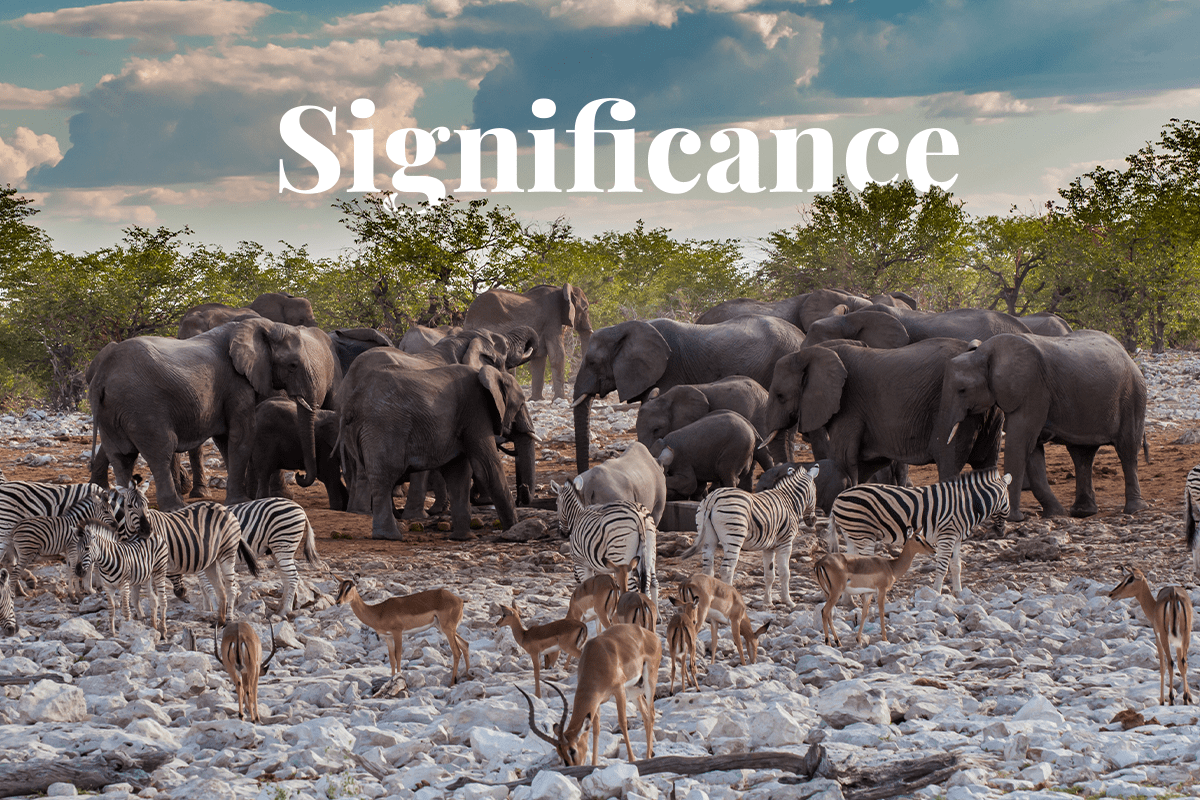 Wildlife crowd around a watering hole in Etosha National Park in Namibia.
Wildlife crowd around a watering hole in Etosha National Park in Namibia.
What are ecosystem services: defining the foundations of life
Ecosystem services encompass the multitude of benefits that natural ecosystems offer to humans and the environment. These services can be categorised into provisioning, regulating, cultural, and supporting services. Each category plays a vital role in maintaining the delicate balance of our planet's ecosystems and supporting human wellbeing.
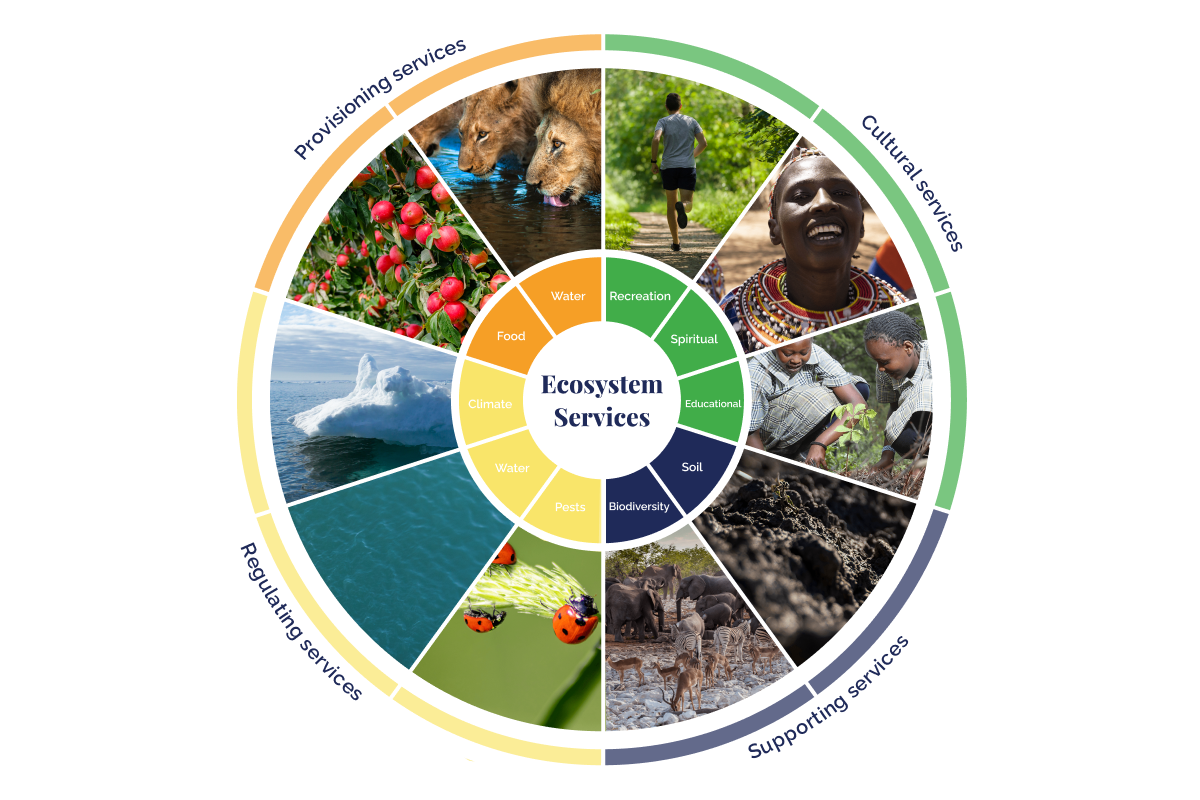 10 Vital ecosystem services.
10 Vital ecosystem services.
Provisioning services
1. Freshwater supply: nurturing life's thirst
Freshwater supply is an essential ecosystem service that nurtures life's thirst and sustains the wellbeing of all species. It plays a vital role in providing clean water for drinking, from water purification to water retention, irrigation, and industrial processes. Freshwater sources, such as rivers, lakes, reservoirs, and underground aquifers, serve as lifelines for human civilisations, supporting daily needs and enabling agricultural productivity. Only 3% of all water on Earth is fresh water, with even less accessible for human use.
Read more: Trees are nature's water managers: the importance of trees in water conservation
Wetlands such as marshes and swamps act as natural filters, removing pollutants and impurities from the water as it flows through. This natural filtering process not only provides us with clean drinking water but also helps to prevent water-borne diseases.
Healthy ecosystems also play a crucial role in retaining freshwater through the natural water cycle. Trees, plants, and other vegetation help regulate water flow, minimising the risk of floods and drought.
Salt marshes and marine ecosystems are also essential components of our freshwater supply. These saltwater environments help to regulate the salinity levels of coastal waters, preventing saltwater intrusion into freshwater sources.
Marine conservation efforts are crucial in maintaining the health of our ecosystems as they are all interconnected. Pollution, overfishing, and climate change are all significant threats to our freshwater supply, and we must take collective action to preserve these vital ecosystem services.
Read more: How to protect the oceans and marine life
The significance of fresh water goes beyond human consumption. It also maintains the delicate balance of ecosystems and supports diverse aquatic and terrestrial organisms. However, the availability and quality of fresh water face increasing threats, including pollution, overuse, and climatic impacts. To ensure the continuous provision of clean and abundant fresh water, it is crucial to protect water sources, promote sustainable water management practices, and raise awareness about the importance of preserving this precious resource for present and future generations.
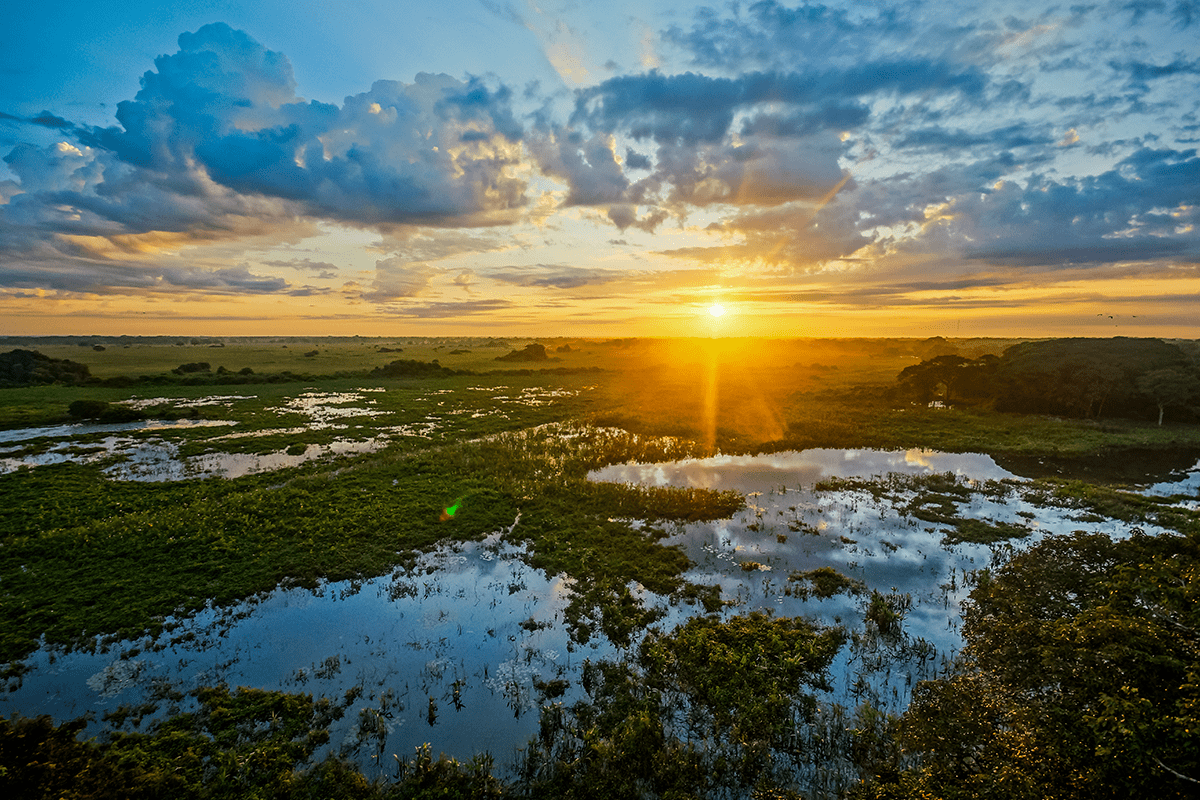 Sunrise in Pantanal, Brazil. Pantanal is the world's largest wetland.
Sunrise in Pantanal, Brazil. Pantanal is the world's largest wetland.
2. Food production: harvesting nature's bounty
Food production, driven by the collaborative efforts of farmers, ranchers, and fishers, enables us to harvest nature's bountiful offerings and sustain our global food supply. Around 80% of the world’s food is produced by family farms (that is, farms of less than 2 hectares in size). Agriculture and fisheries serve as the backbone of food production, ensuring there is enough nourishing sustenance to meet the needs of a growing population. Marine ecosystems play a crucial role in food production, providing a source of protein for billions of people worldwide, with fish representing about 17% of the global meat intake.
According to the World Wildlife Fund (WWF), agriculture is the leading pollution source in many countries. The pesticides, fertilisers, and other toxic chemicals used pollute the soil, water, and air and can remain in the environment for many generations. Moreover, agricultural practices have proven notoriously unsustainable and have contributed to the homogenisation of the world’s ecosystems. However, through sustainable farming practices, like regenerative farming, agroforestry, and crop rotation, agriculture can harness the Earth's power to yield more abundant harvests more sustainably.
Similarly, fisheries are a prominent resource-depleting industry, harvesting vast amounts of fish from our oceans, lakes, and rivers. However, through responsible fish and seafood harvesting and aquaculture, this industry can become more sustainable and continue to provide the world with a vital source of protein.
The adoption of sustainable practices in the agricultural and fisheries industry, along with nature conservation, is thus essential for maintaining healthy ecosystems and promoting sustainable food production. Farmers and fishers who rely on natural resources must be aware of their impact on the environment and take steps to minimise such impact. By adopting more sustainable practices, we can ensure these provisioning services are environmentally friendly and economically viable and can address our basic nutritional requirements, continue to provide for a growing population, and support local economies, livelihoods, and food security on a global scale.
Genetic resources are vital in ensuring that crops and livestock are resilient to environmental stressors and can adapt to changing climate conditions. By preserving genetic diversity, we take steps to ensure that our food systems remain robust in the face of future challenges.
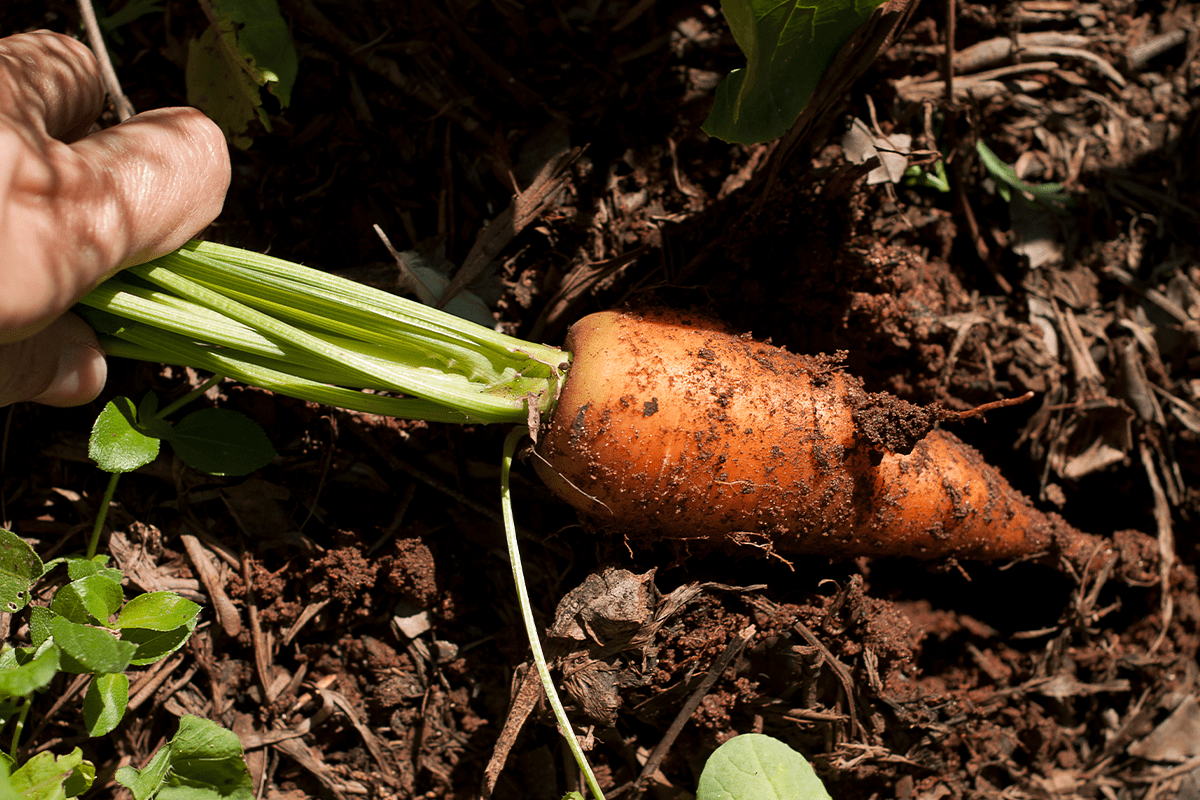 Freshly picked carrot from Brazilian agroforestry.
Freshly picked carrot from Brazilian agroforestry.
Regulating services
3. Climate regulation: nature's cooling system
One of nature's most vital ecosystem services is climate regulation. This service refers to the natural processes that regulate the climate on Earth. Forests, oceans, and wetlands act as natural climate regulators, absorbing and storing large amounts of carbon dioxide, acting as huge carbon sinks. They play a critical role in maintaining a stable climate for the wellbeing of all species. Forests sequester carbon dioxide through photosynthesis, oceans absorb carbon dioxide through photosynthesis by plant-like organisms (like phytoplankton), and wetlands store significant amounts of carbon in their soils and vegetation.
Read more: The importance of conserving Earth's wetlands for a sustainable future
Carbon dioxide emissions absorb and radiate heat, therefore contributing to changing climates. The carbon sequestration provided by these carbon sinks therefore helps reduce greenhouse gas concentrations and mitigate climate change.
Marine and coastal ecosystems, such as mangroves, salt marshes, and seagrass beds, play a crucial role in regulating the Earth's climate. These ecosystems absorb and store large amounts of carbon dioxide. Moreover, they also help to prevent coastal erosion and protect against storm surges and flooding.
Coral reefs are another important ecosystem that contributes to regulating the Earth's climate. Coral reefs are known as the ‘rainforests of the sea’ due to their high biodiversity. They also help to regulate the Earth's climate by absorbing and storing large amounts of carbon dioxide. However, coral reefs are under threat due to climate change and other human activities such as overfishing, pollution, and coastal development. Therefore, marine conservation efforts are vital to protect and restore these ecosystems.
Moreover, climate regulating services provide intermediate services that are also important to human wellbeing. For example, climate regulation helps to maintain the Earth's temperature, which is essential for agriculture and food security. It also reduces the incidence of natural disasters such as floods, droughts, and hurricanes.
The stable climate these ecosystems maintain is vital for preserving habitats, biodiversity, and the continuity of essential ecosystem services that support human societies. Protecting and restoring these ecosystems is thus crucial for ensuring a healthy planet and the wellbeing of all species.
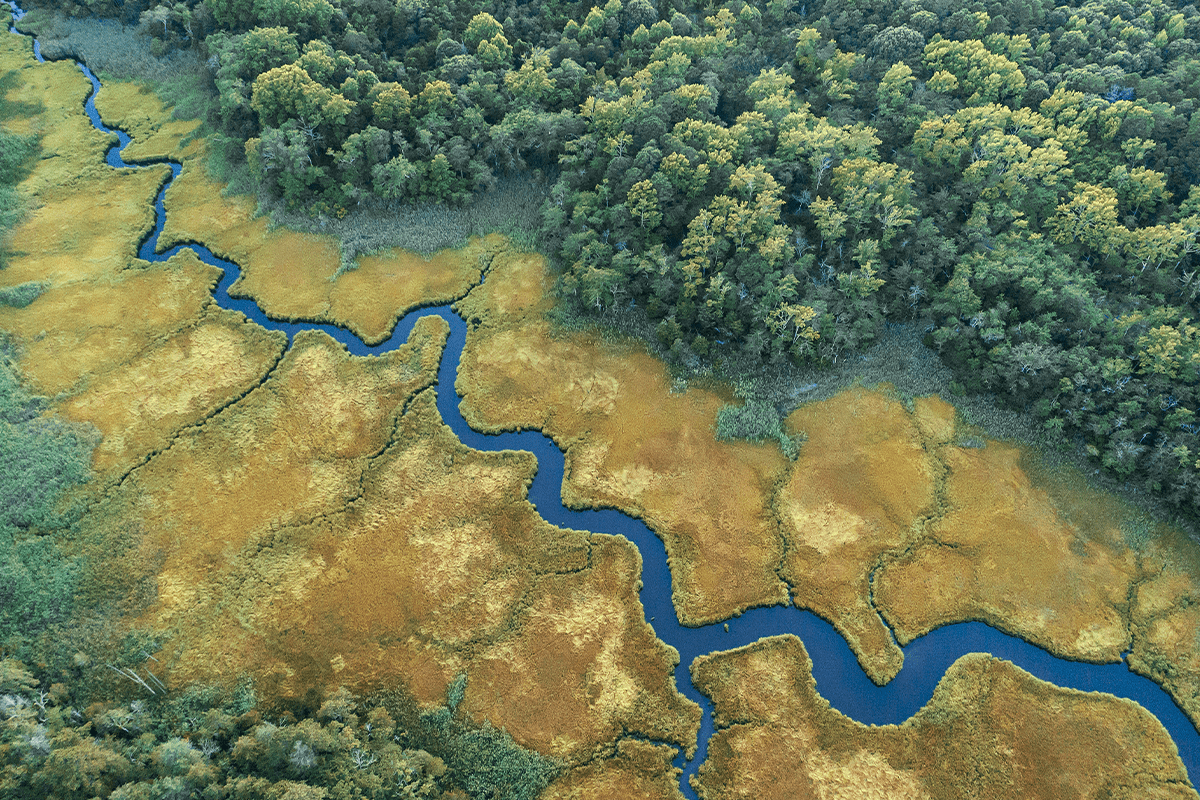 Aerial view of a creek in salt marshes.
Aerial view of a creek in salt marshes.
4. Water regulation: balancing nature
Water regulation is an essential ecosystem service that involves balancing and managing water flow in natural systems. The natural world provides many ways to regulate and balance water, from salt marshes to coral reefs. These natural systems play a vital role in maintaining our planet's water cycle, which is essential for all life forms.
Salt marshes, for example, act as natural sponges that retain floodwaters and prevent coastal erosion. They are also crucial habitats for many species of fish and birds. Coastal ecosystems also provide vital protection against hurricanes and storms, which are becoming more frequent and severe due to climate change.
Coral reefs are another critical ecosystem that helps regulate water. They act as natural filters that remove impurities from seawater, providing clean water for marine life and humans. They also protect coastlines from storms and provide a home for over 25% of all marine life.
Freshwater ecosystems such as watersheds and wetlands are vital in regulating water by acting as natural buffers, purifying water sources, and reducing the risk of floods. Watersheds, with their intricate network of rivers, streams, and underground aquifers, help to capture, store, and distribute water resources. Wetlands act as natural sponges, absorbing excess water during heavy rainfall and slowly releasing it during dry periods, thus maintaining a more balanced water flow.
Read more: Water conservation: protecting nature's liquid gold
These ecosystem processes not only provide water security for human communities but also support the diverse array of species that depend on these habitats for their survival. Protecting and restoring these water-regulating ecosystems through freshwater and marine conservation efforts is essential for sustaining water availability, reducing the impacts of floods, safeguarding biodiversity, and ensuring the resilience of ecosystems and human societies in the face of changing climates.
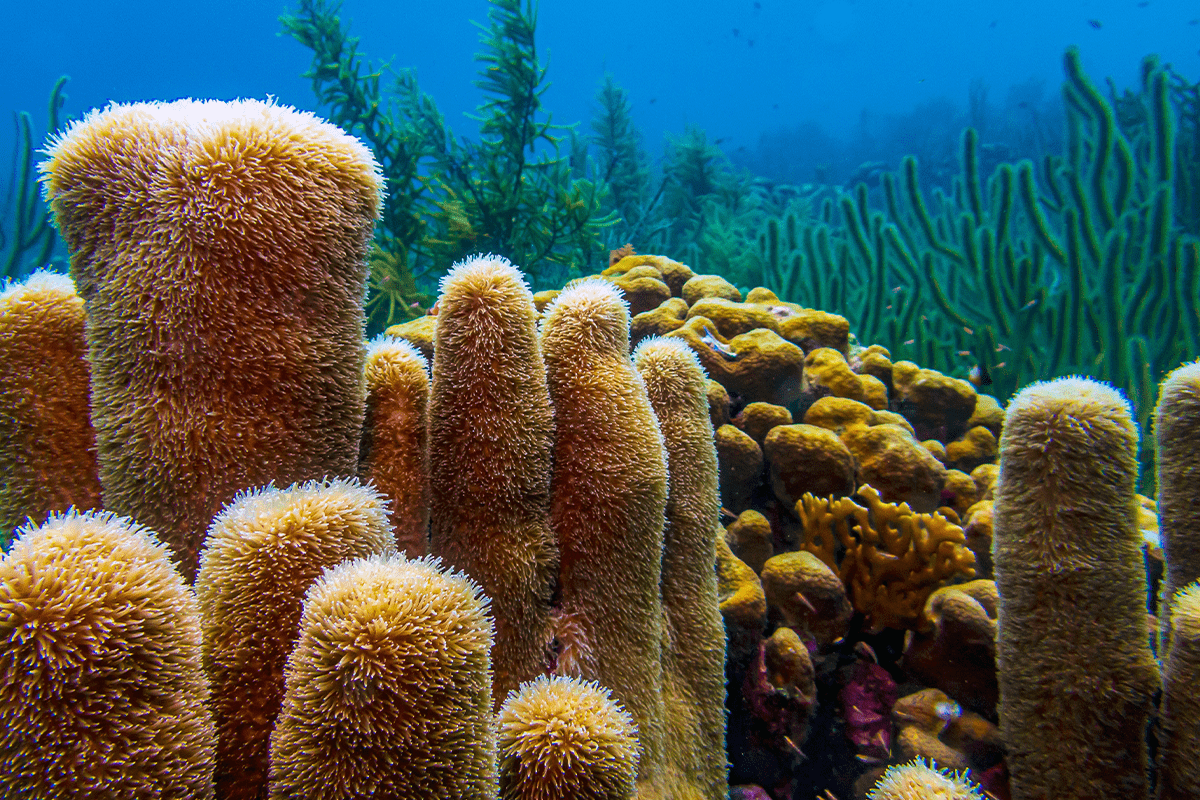 Caribbean coral reef off the coast of the island of Bonaire.
Caribbean coral reef off the coast of the island of Bonaire.
5. Pest regulation: nature's pest control
Pest regulation is a vital ecosystem service provided by nature, acting as a natural pest control system. Ecosystems and their biodiversity maintain a delicate balance where various species, including predators, parasites, and pathogens, help regulate pest populations. By preying on or controlling pests, these natural enemies play a crucial role in preventing pest outbreaks and minimising the need for chemical interventions. Many species of birds, mammals, and insects, like ladybugs and wasps, play a role in controlling pests, such as mosquitoes, ticks, and agricultural pests like aphids and caterpillars.
The concept of ecosystem services recognises the importance of these interactions and the benefits they provide to humans. For instance, the natural control of pests reduces the need for synthetic pesticides, which negatively impact the environment and human health. Invasive species can also disrupt these interactions and lead to a decline in pest control services.
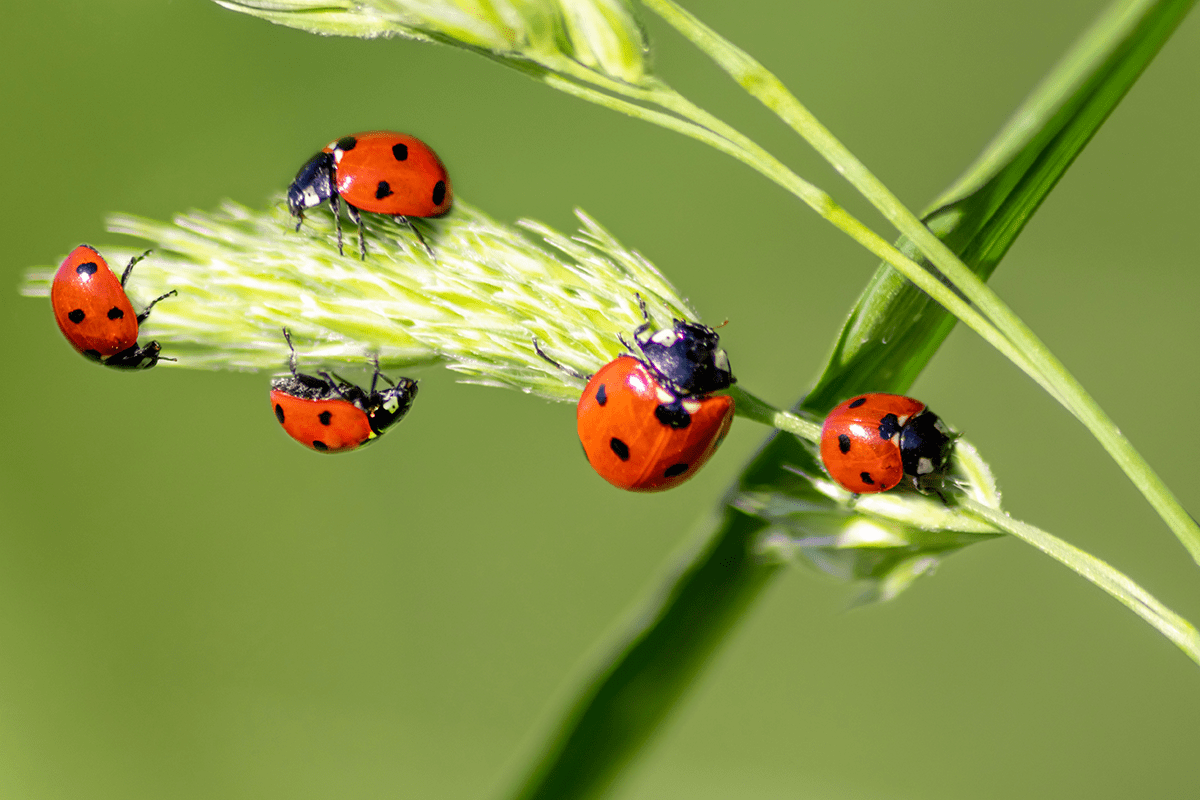 Ladybugs climbing a plant.
Ladybugs climbing a plant.
Forest services, such as maintaining healthy forests and conserving biodiversity, are vital in pest regulation. Forests are home to many species that regulate pest populations. For example, bats feed on insects, and woodpeckers feed on tree-dwelling insect larvae.
Pest regulation is a critical ecosystem service. We need to better understand and value the relationships between ecosystem services, the impact of invasive species, and the importance of forest services. We must also take steps to preserve natural habitats, such as forests and grasslands, and promote biodiversity, which is essential to maintaining robust pest regulation services. By embracing nature's pest control mechanisms, we can foster sustainable agriculture, minimise environmental impacts, and protect the health of ecosystems and human populations.
Cultural services
6. Recreation and tourism: nature's playground
Cultural services provided by ecosystems include recreation and tourism, offering a gateway to nature's playground. Ecosystems, from pristine beaches to majestic mountains and serene forests, provide opportunities for outdoor activities, relaxation, and rejuvenation. Nature-based recreational activities such as hiking, camping, wildlife watching, and water sports not only promote physical and mental wellbeing but also foster a deep connection with the natural world.
Read more: Green infrastructure: how nature can improve urban living
Moreover, these natural landscapes serve as popular tourist destinations, attracting visitors from around the globe and contributing to local economies. Consequently, recreation and tourism are vital ecosystem services that provide numerous benefits to human wellbeing and contribute to the ecosystem services concept. By appreciating, protecting, and responsibly enjoying these natural services, we can create a harmonious balance between human recreation, conservation efforts, and preserving natural wonders for future generations to experience and cherish.
7. Aesthetic and spiritual value: finding serenity in nature's beauty
While ecosystem service provision can often be quantified in terms of economic benefits, cultural ecosystem services are a more intangible but equally important aspect of sustaining life on Earth. One of these cultural services is the aesthetic and spiritual value that nature provides.
From breathtaking sunsets over the ocean to the tranquil serenade of birdsongs in a lush forest, the sights, sounds, and scents of nature profoundly affect our wellbeing. Many people find solace and peace in the beauty of nature. Studies have shown that connecting with natural landscapes has a profound impact on our mental and emotional wellbeing, helping to reduce stress, anxiety, and depression. It can also evoke feelings of awe, wonder, and tranquillity, providing a respite from the stresses of daily life.
Moreover, nature is also a source of spiritual inspiration for many cultures around the world. From indigenous communities to organised religions, nature plays a central role in providing a sense of connection to something greater than ourselves. Whether it's a sacred grove, a pilgrimage to a mountaintop, or a prayer in a tranquil garden, nature offers a space for contemplation and reflection.
Preserving and experiencing the aesthetic and spiritual value of ecosystems allows us to cultivate a deeper appreciation for the wonders of our planet and the profound connection we share with the natural world.
 Masai woman. Part of Corekees' Bee Project visit in Laikipia North, Kenya.
Masai woman. Part of Corekees' Bee Project visit in Laikipia North, Kenya.
8. Educational and scientific value: lessons from the natural world
As stated by the Food and Agriculture Organization (FAO), this ecosystem service ‘refers to the knowledge, skills, and inspiration that nature provides to support learning, creativity, innovation, and scientific research.’
Ecosystems hold immense educational and scientific value, offering us a wealth of knowledge and insights into the intricacies of the living world. They serve as living classrooms, providing opportunities for hands-on learning and discovery. From studying diverse species and their interrelationships to understanding ecosystem dynamics and ecological processes, ecosystems offer a vast array of research possibilities.
Through ecosystem service studies and the ecosystem services approach, we have a greater understanding of the importance of nature as a teacher and provider of scientific knowledge. The natural world provides countless examples of complex systems, patterns, and processes that can be studied and applied to various fields of science, medicine, and technology. For instance, researchers can learn about the mechanics of photosynthesis and apply it to solar energy technology. Studies of animal behaviour and communication have even inspired advancements in robotics.
Additionally, the cultural ecosystem services provided by nature have educational and scientific value as well. Indigenous knowledge and practices passed down through generations can offer insights into the relationships between humans and nature. This knowledge can inform conservation efforts and sustainable practices.
By delving into the scientific exploration of ecosystems, we uncover valuable information that informs conservation efforts, guides sustainable resource management, and expands our understanding of the natural world. Additionally, ecosystems inspire curiosity, fostering a sense of wonder and appreciation for the complex web of life. Nurturing the educational and scientific value of ecosystems ensures that future generations can continue to learn from and be inspired by the living world, paving the way for innovative solutions to environmental challenges and a deeper understanding of our place within the natural realm.
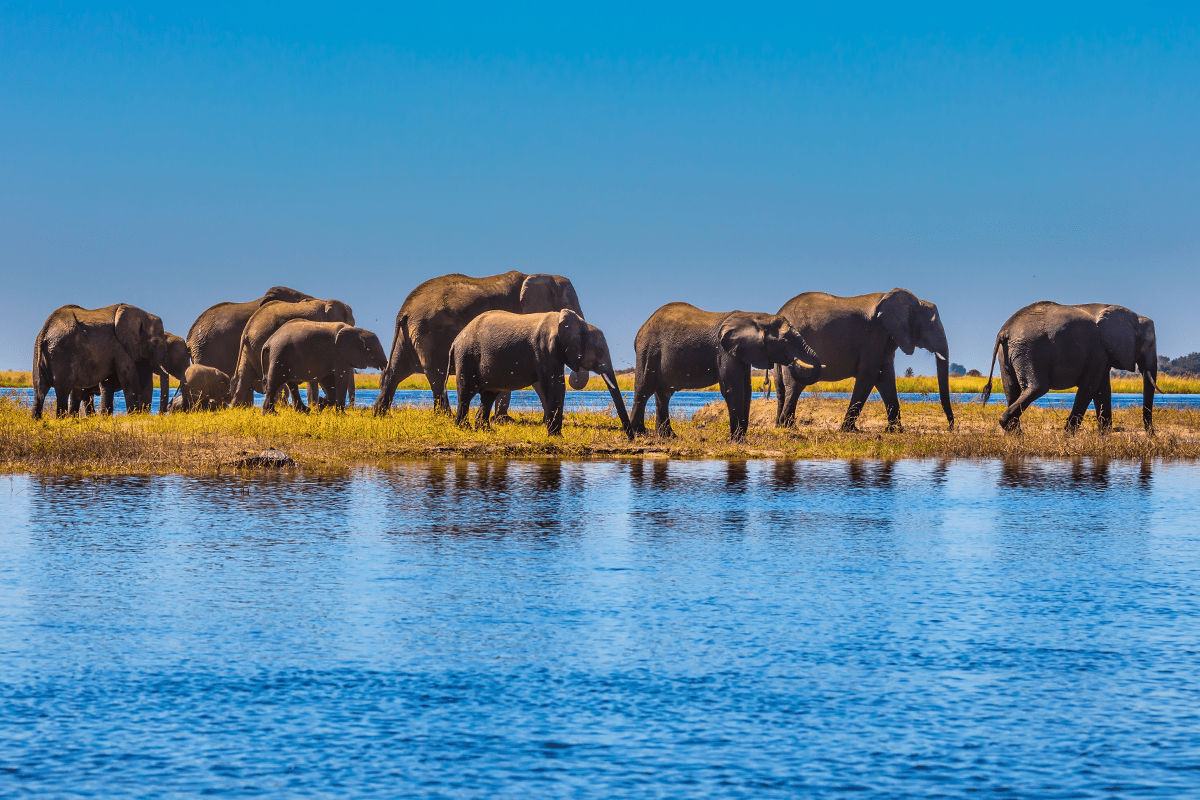 Herd of elephants crossing a river in Chobe National Park, Botswana.
Herd of elephants crossing a river in Chobe National Park, Botswana.
Supporting services
9. Biodiversity conservation: preserving life's variety
Biodiversity conservation is a critical ecosystem service preserving the incredible variety of life on Earth. Biodiversity refers to the variety of living organisms, including plants, animals, fungi, and microorganisms, and their interactions with each other and their environment. Biodiversity is essential for maintaining the balance of ecosystems and providing the goods and services that support human wellbeing.
Ecosystems thrive on the intricate interactions between different species, each playing a unique role in maintaining ecological balance. From the smallest microorganisms to majestic apex predators, every organism contributes to the resilience and stability of ecosystems.
Nature conservation is particularly important for biodiversity conservation. Protecting natural areas such as forests, wetlands, and grasslands helps to preserve the diversity of life forms within these ecosystems. This, in turn, helps to maintain the ecological processes that support life on Earth. Tropical forests, for instance, host 50% to 90% of the world’s species.
 Cat Margay sitting on a branch in the Costa Rican tropical forest.
Cat Margay sitting on a branch in the Costa Rican tropical forest.
Marine conservation is also crucial for biodiversity conservation. Marine ecosystems provide important habitats for many species, including fish, whales, dolphins, and sea turtles. These ecosystems also support important services such as carbon sequestration, oxygen production, and food production.
Biodiversity conservation not only safeguards species from extinction but also protects the intricate web of interdependence that sustains life. Preserving biodiversity offers numerous benefits, including the discovery of new medicines, the resilience of ecosystems in the face of environmental changes, and the provision of essential ecosystem services. By actively protecting habitats, implementing sustainable land-use practices, and combating factors such as habitat loss and fragmentation, we can ensure the preservation of biodiversity and promote a healthy, thriving planet for future generations.
Read more: 7 Strategies for protecting wildlife
10. Soil formation and fertility: nurturing Earth's foundation
Soil is the foundation of life on Earth. It contains the essential nutrients and microorganisms that support plant growth, which sustains all other life forms. Soil also plays a critical role in regulating the Earth's climate by storing carbon, which prevents it from being released into the atmosphere as greenhouse gases.
Soil formation is a complex process that involves the interaction of physical, chemical, and biological factors. Through a slow and intricate process through the weathering of rocks, organic matter decomposition, and the activity of microorganisms and soil organisms, soil is formed. This fertile layer sustains plant life by providing essential nutrients, water retention, and a supportive medium for root systems.
Read more: Preventing desertification: Top 5 success stories
One of the most important ecosystem services provided by soil is its ability to form and maintain soil fertility. However, soil fertility is under threat from a variety of factors. One of the biggest threats is soil loss due to erosion, which can be caused by human activities like deforestation and agriculture. Invasive species can also disrupt soil ecosystems, as they often outcompete native plants and disrupt the delicate balance of nutrients and microorganisms that support soil fertility.
To measure the health of soil ecosystems, scientists use a variety of ecological indicators, such as soil organic matter content, soil carbon storage, and nutrient cycling rates. By monitoring these indicators, researchers can identify areas where soil fertility is declining and take steps to restore it.
Healthy soils also play a key role in carbon sequestration by storing large amounts of carbon. In addition, soil plays an important role in water retention and filtration. Healthy soils can retain water and prevent erosion, which helps to reduce the risk of flooding and improve water quality.
Recognising the importance of soil fertility, sustainable land management practices, erosion control, and soil conservation is essential for preserving soil fertility and preventing degradation. By nurturing the foundation of our ecosystems, we can ensure the continued productivity of agricultural systems, maintain biodiversity, and foster a resilient environment for all life forms.
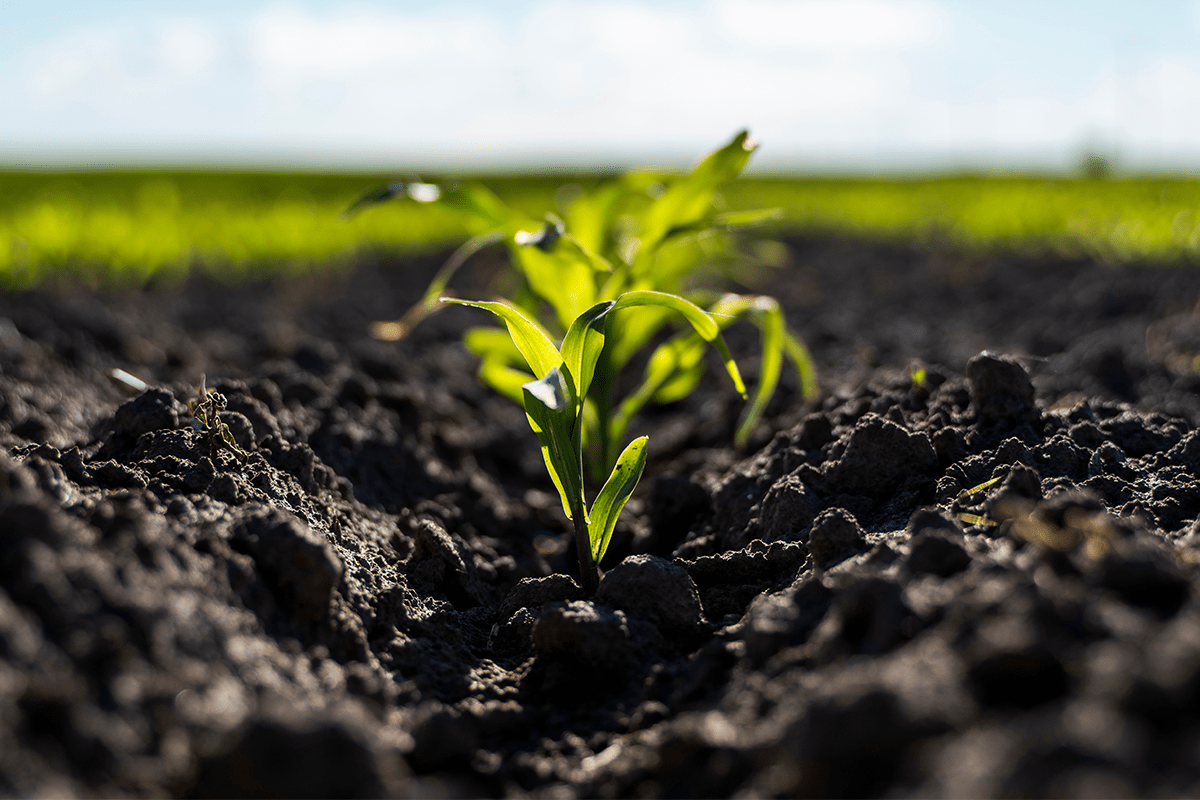 Green young corn plants growing from soil.
Green young corn plants growing from soil.
Challenges and threats to ecosystem services: preserving the foundations of life
The ecosystem services concept is one of the most important frameworks for understanding how human activities impact the environment and our ability to sustain life on Earth. Ecosystem services refer to the benefits humans derive from nature, such as clean air and water, crop pollination, and climate regulation. However, the provision of these services is facing increasing challenges and threats.
While ecosystem services are essential for our wellbeing, they face various challenges and threats that require our attention and action. Here are some of the most significant:
- Human activities: Unsustainable human practices such as deforestation, mining activities, pollution, and overexploitation of natural resources pose significant threats to ecosystem services. Such activities can lead to soil erosion, habitat loss, reductions in biodiversity, and disruptions in weather patterns or water availability. We must address these activities to ensure the long-term sustainability of our ecosystems.
-
Climatic instability: The impacts of changing climates, including rising temperatures, changing rainfall patterns, and extreme weather events, can disrupt vital ecosystem services. Mitigating these changes is crucial for protecting ecosystem services.
-
Loss of biodiversity: The ongoing loss of species and habitat destruction diminishes the resilience of ecosystems and compromises their ability to provide essential services. The over-exploitation of genetic resources (wild species, for instance) for food, medicine and other uses can lead to declines in populations and loss of genetic diversity. Conserving biodiversity is vital for maintaining the functioning of ecosystems.
Conservation and sustainable practices: nurturing our lifeline
Nature conservation is essential for maintaining ecosystem services. By protecting natural habitats and species diversity, we can ensure that these services continue to function properly. Sustainable practices are also important in preserving these services for future generations. This includes reducing our carbon footprint, using resources efficiently, and adopting environmentally friendly practices. To safeguard and restore ecosystem services, we must adopt conservation and sustainable practices such as:
- Conservation efforts: Protecting and restoring natural habitats, measuring the health of ecosystems, implementing protected areas, and promoting sustainable land and resource management are key to conserving ecosystem services.
- Awareness and responsible behaviour: Increasing awareness about the value of ecosystem services among individuals, communities, and decision-makers is crucial. Encouraging responsible behaviours, such as sustainable consumption and waste reduction, can make a significant difference.
- Policy initiatives and international collaboration: Governments and international organisations play a vital role in enacting policies and initiatives that prioritise ecosystem conservation, restoration, and sustainable development. Collaboration across borders is essential for addressing global challenges.
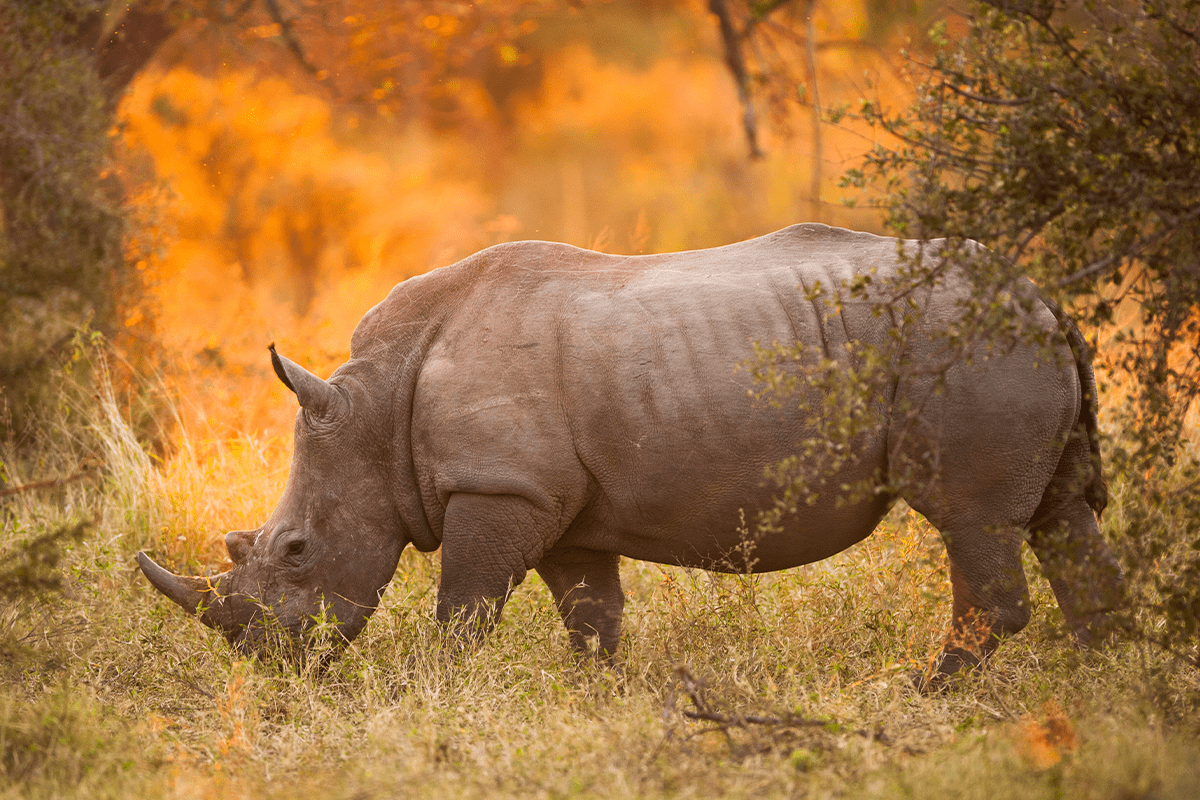 A rhino eating grass in the Kruger National Park, South Africa.
A rhino eating grass in the Kruger National Park, South Africa.
The provision of ecosystem services is critical to maintaining the balance of nature and sustaining life on Earth. By protecting and preserving our natural systems, we can ensure that they continue to provide the vital services we rely on for survival. It is up to us to take action and ensure that these ecosystems are protected and restored for future generations.
DGB Group embraces the value of ecosystem services
The 10 vital ecosystem services discussed in this blog are the pillars of life on Earth. From freshwater supply to biodiversity conservation, each service is essential in sustaining our planet and ensuring the wellbeing of present and future generations. By understanding their significance, addressing their challenges, and embracing conservation and sustainable practices, we can secure these services and create a harmonious relationship between humans and the natural world.
At DGB Group, our commitment to sustainability and biodiversity is steadfast. We are confident that our innovative approaches to conservation, restoration, and sustainable development can help foster a greener future. We strive to build resilient ecosystems by working with forward-thinking organisations and collaborating with local authorities and communities. By doing so, we actively create new opportunities for nature conservation through our afforestation, reforestation and habitat protection projects, and ultimately support the journey of businesses towards a sustainable, net-zero future.
Join us in ensuring a sustainable future for all

 10 Vital ecosystem services.
10 Vital ecosystem services.








 A rhino eating grass in the Kruger National Park, South Africa.
A rhino eating grass in the Kruger National Park, South Africa.